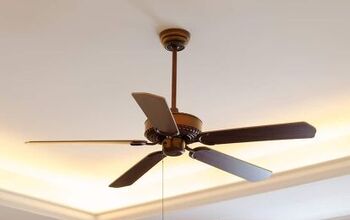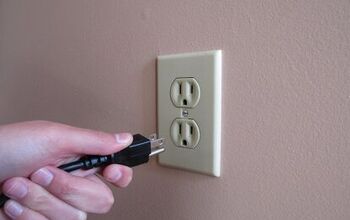Rinnai Vs Navien: Which Tankless Water Heaters Is Better?

Whenever I walk into a home with natural gas or propane, I recommend installing a tankless water heater. They’re quickly becoming the most sought-after water heaters next to hybrid-electric units, and can provide “endless hot water.”
Two brands – Rinnai and Navien – are now the most common choices among plumbers (myself included). While Rinnai has a slight edge over Navien with regard to reliability, Naviens aren’t bad units. Both will last a long time with regular maintenance.
In this article, we’ll provide an overview of two models we install: Rinnai’s RUR199iN and Navien’s NPE-240A2. Both possess ¾” natural gas connections, condensing technology, and require direct air intake and exhaust connections.
One point to clarify: tankless systems are almost always wall-mounted. In fact, I’ve never seen a tankless that isn’t. An installer sets a couple of two-by-fours to your basement wall, drills a sheet of plywood to the two-by-fours, and then mounts the water heater. Keep this in mind when you’re picking one out.
Do You Need Tankless Water Heater Installation?
Get free, zero-commitment quotes from pro contractors near you.

Rinnai RUR199iN Overview
Boasting a Uniform Energy Factor (UEF) of .93 at a maximum capacity of 199,000 BTUs per hour, the RUR199iN promises to last “twice the lifespan of most tanks.” It comes with a 15-year warranty on its stainless steel heat exchanger, 5-year warranty on other parts, and 1-year warranty for labor. Safety devices include:
- Flame rod.
- Boiling protection.
- Combustion fan rotations-per-minute check.
- Glass fuse for over-current protection.
- Automatic frost protection.
Delivering 11 gallons per minute of flow, the RUR199iN is capable of serving a home with three to six fixtures running simultaneously. It weighs 73 lbs, and is about 2’7” high. Big Frog Supply listed the RUR199iN at $2,178.75 as of June 2021.
RUR199iN Energy Efficiency
As outlined in our article comparing A.O. Smith and Bradford White’s water heaters, the Department of Energy (DoE) developed the UEF to assess water heater efficiency. The higher the UEF, the lower the energy costs.
A .93 UEF is one of the best ratings you’ll get from a gas-fired water heater, whether we’re talking tankless or tank-type models. The RUR199iN’s Energy Guide sticker estimates a yearly energy cost of about $201 – making it more efficient than similar tankless water heaters.
RUR199iN Reliability
The RUR199iN’s reliability lies in the warranties themselves. Many manufacturers won’t warranty their heat exchangers for more than 12 years, while Rinnai has a 15-year warranty.
At my company, we typically offer the Rinnai as the “best” option out of the three we install (Rinnai, Bosch, and Navien). We’ve had fewer service calls on these models, particularly on the heat exchanger’s flame sensor.
One thing to note: the water tappings located at the bottom of the system don’t wobble when cranking on brass fittings. It’s a little detail that attests to the Japanese brand’s quality manufacturing and engineering. I don’t have to worry about breaking an internal connection and ordering a part right off the bat.
Homeowners appear happy with Rinnai’s water heaters as well. Avid Ratings, which offers customer experience solutions, aggregated feedback from 5,000 Rinnai customers who had submitted warranty registrations. The manufacturer earned 4.4 out of 5 stars for satisfaction.
RUR199iN Performance
With regard to performance, the Rinnai is on par with the Navien. Both models will produce the “cold water sandwich” many customers complain about from time-to-time. This is an important detail to remember.
Think about it: the water heater isn’t running until you turn on the hot side of a fixture. The sensors in the water heater will register water flowing from its hot outlet, and then commence the combustion process. If you keep the fixtures running, then you’ll get the “endless hot water” these systems are famed for delivering.
RUR199iN Ease Of Installation And Service
This is where the little details matter. One thing I like about the Rinnai is the location of its condensate drain. It’s located to the left of the cold inlet, hot outlet, and gas inlet connections. It’s a small design feature that makes installation go a lot smoother.
Another nice convenience is that the temperature and pressure (T+P) relief valve has its own port. Many tankless models place the T+P on a female adapter located on the hot inlet’s isolation valve. Rinnai’s approach makes servicing a tad more secure, as you don’t have to worry about moving the hot inlet’s tapping.
Navien NPE-240A2
The Navien NPE-240A2 comes with a stainless steel primary heat exchanger. With a maximum operating capacity of 199,000 BTUs per hour, this model delivers 11.2 gallons per minute of flow and contains a range of safety devices:
- Flame rod.
- Ignition operation detector.
- Water temperature high limit switch.
- Power surge fuse.
- Burner high limit fuse.
- Vent installation detector.
Navien matches Rinnai’s warranties: 15 years for the heat exchanger, five years for parts, and one year for reasonable labor. The cost of the unit itself was $1,999 on My Tankless Water Heater Store, but I’ve seen it available through other supply houses around $1,600.
NPE-240A2 Energy Efficiency
The NPE-240A2 has a slight edge over Rinnai’s RUR199iN with a .96 UEF – a full .3 points higher than the latter model. However, due to the Navien’s internal design, the Energy Guide label estimates the yearly energy cost at $471. That’s a full $270 more than the Rinnai.
NPE-240A2 Reliability
The only real issue I’ve seen with the Navien is that the flame sensors on the heat exchanger fail prematurely. I’ve replaced several in the six months I’ve been working as a service plumber.
Other than that, the NPE-240A2 isn’t poorly built by any means. The water tappings move slightly when threading on isolation valves, but that’s the only real concern. One thing’s for sure: the stainless steel heat exchanger increases the unit’s durability against hard water.
NPE-240A2 Performance
Navien’s quick facts guide includes a table outlining the gallons-per-minute (GPM) of flow for the NPE-240A2. As you’ll see below, the amount of water the unit can heat and deliver to your fixtures depends on how cold your incoming water is.
| Temperature Rise (in Fahrenheit) | 240A2 GPM |
| 35° F | 11.2 |
| 40° F | 9.8 |
| 45° F | 8.7 |
| 50° F | 7.8 |
| 55° F | 7.1 |
| 60° F | 6.5 |
| 65° F | 6.0 |
| 70° F | 5.6 |
| 75° F | 5.2 |
| 80° F | 4.9 |
| 85° F | 4.6 |
| 90° F | 4.4 |
| 100° F | 3.6 |
For example, let’s say the water coming into the water heater is 50°F. You set your hot water temperature to 120°F. The NPE-240 A2 will deliver 5.6 gallons per minute of flow to your fixtures, given how long it needs to heat up the water.
In my opinion, this would be enough to run a shower, kitchen sink, and dishwasher simultaneously. It all depends on how many people live in your house, where you live, and how much water you use on average.
NPE-240A2 Ease Of Installation And Service
My only gripe with the NPE-240A2 is that the condensate drain is located behind the gas inlet. It reduces the amount of space I have to work with, especially if I need to put an acid neutralizer on the system.
Other than that, the NPE-240A2 is on par with the Rinnai. I’d say the Rinnai is marginally faster to install. The big deciding factor is the house in which I’m working. Is the gas connection 20 feet away? Do I need to drill through a 100-year-old 8-inch by 8-inch beam for the vents? These are things most plumbers think about.
Overall, you’re looking at two fine systems. The NPE-240A2 is generally more affordable, but the Rinnai’s quality is a tad higher. Your go-to plumber may have a different opinion, though. Listen to them!
Why This One Plumber Prefers Navien
Do You Need Tankless Water Heater Installation?
Get free, zero-commitment quotes from pro contractors near you.

Related Questions
How Does A Tankless Water Heater Work?
A tankless water heater only runs when you use hot water.For example, when you turn on the hot side of your shower, water begins flowing through the tubing in the tankless’s heat exchanger. Sensors detect this flow, and then initiate the combustion process:
- Combustion fan starts, bringing air in from the intake vent.
- Spark igniter turns on.
- Gas valve opens up to send fuel to a series of solenoid valves which sit below a combustion chamber.
- A flame rod senses the fire in the combustion chamber, and then turns off the spark igniter.
From there, a control board (essentially, a small computer) monitors the flame rods, fan motor frequency, hot water temperature, water flow rate, and set temperature. It will open more solenoid valves as water demand increases, and close solenoid valves as demand decreases.
One thing to note: Most condensing boilers have a secondary heat exchanger to pre-heat the water before it enters the primary heat exchanger. The secondary heat exchanger facilitates this heat transfer by using the warm condensate from the water heater’s flue gas vent.
The control board shuts down the tankless system whenever you turn off the hot side of your fixtures. If you don’t need hot water at the moment, there’s no need for the water heater to run.
This is what makes tankless water heaters much more efficient than tank-type alternatives. The flame on a tank needs to heat up at least 50 gallons of water, so the combustion process lasts much longer.

We are a team of passionate homeowners, home improvement pros, and DIY enthusiasts who enjoy sharing home improvement, housekeeping, decorating, and more with other homeowners! Whether you're looking for a step-by-step guide on fixing an appliance or the cost of installing a fence, we've here to help.
More by Upgraded Home Team










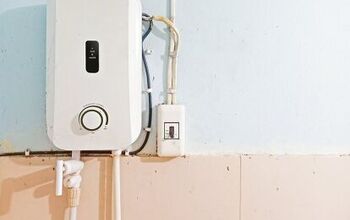
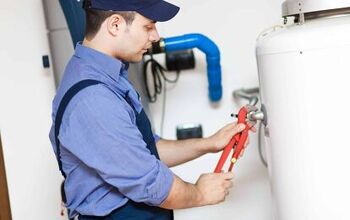
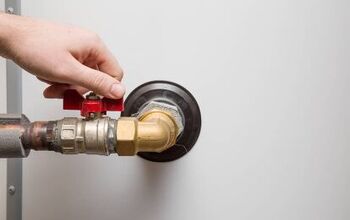
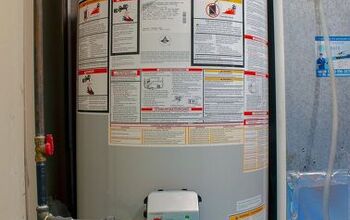
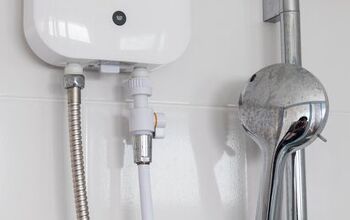
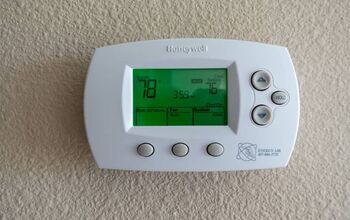

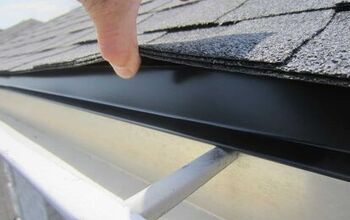

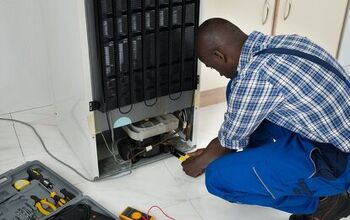



![12 Washing Machine Brands to Avoid [with Recall Data]](https://cdn-fastly.upgradedhome.com/media/2023/07/31/9075781/12-washing-machine-brands-to-avoid-with-recall-data.jpg?size=350x220)
